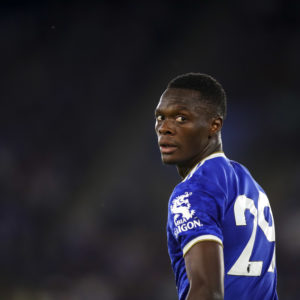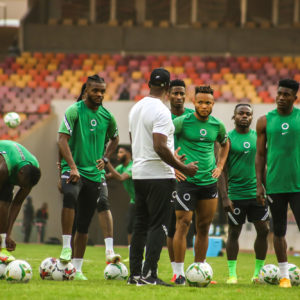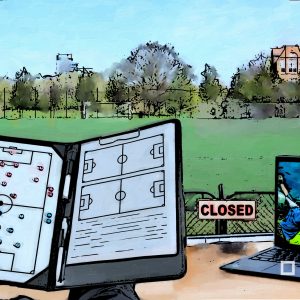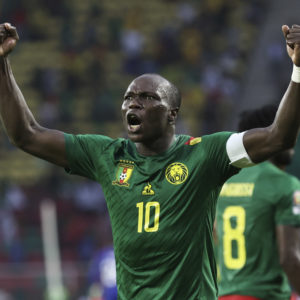Irfan Kawri, the man of many hats
His making the rounds of several English clubs in a great variety of roles has turned him into the ideal mentor to impart his knowledge to others at the elite level of the country’s football.
Author:
16 March 2022

At the top of the English football pyramid, there aren’t many coaches – or players, for that matter – who look like Irfan Kawri. “Being in football and being from an African background and South Asian, as my dad is Indian, if you look at it from that angle it’s unheard of,” says the coach mentor for England’s Football Association (FA) and part-time coach at the Burnley Academy.
“You can probably say that everything I’ve done over the last 14 years, working in English football at elite level, is probably unheard of,” said Kawri, who was born 40 years ago in Bolton and represented Zambia, the country of his mother’s birth, at Under-20 level. “I might have overachieved. Being where I want to get to I probably have to overachieve, times two. That’s how difficult it is.”
Kawri has had many ups and downs since he got his big break in professional football as a first team scout for Wigan Athletic nine years ago. His highs include returning to his ancestral roots in Zambia to serve as assistant coach to George Lwandamina in the men’s senior national team. But even his highs are tinged with lows.
In Zambia, Kawri worked with Chipolopolo legends such as Kennedy Mweene, Collins Mbesuma, Christopher Katongo, Isaac Chansa, Rainford Kalaba and Stoppila Sunzu. In addition, he played a role in the development of Patson Daka and Enock Mwepu, who have since joined the English top flight by signing with Brighton Hove & Albion and Leicester City, respectively, and are regarded as the future of Zambian football. But that stint wasn’t without its challenges.
Related article:
“When I was assistant coach of Zambia under Kalusha Bwalya’s reign as president [of the Football Association of Zambia], I felt highly respected and highly regarded. I had a good level of responsibility with the players in terms of leading training, putting on sessions and preparing for games,” said Kawri.
“When Kalusha left as president [and was replaced by Andrew Kamanga], that became a struggle. The staff there weren’t as forthcoming and as welcoming [as they were with] Kalusha being there. They kind of changed and they didn’t really see me as part of the coaching team, as I was before.
“The players really, really took to my methods, which was reported publicly. They were a bit confused as well about why I wasn’t involved in the input of training as much.
Related article:
“Also, I think there was that bit of insecurity from some of the staff there. Coming from a country like England, the most competitive in the world, and being a bit more qualified than them, they probably saw me as a threat.”
Katongo, the 2012 Africa Cup of Nations-winning captain, corroborated that Kawri, who had joined the Chipolopolo in December 2015, was popular with the players. “He is a good person and is also a good coach. He is a person who quickly understands the cultures of people,” Katongo said.
However, sponsors and a section of supporters reportedly opposed Kawri’s appointment to the national team. The general sentiment among sceptics was that his CV, wasn’t good enough to lead the side as he had no international experience and never served as head coach at the highest level. When he left Zambia in May 2016, the football association said it was a decision made on “mutual ground”.
Teacher and mentor
Kawri decided to go into football coaching as soon as he realised he was not going to make it as a player. He worked as a physical education (PE) teacher while rising up the ranks. Though he has traded the classroom for the football field, he still mentors PE teachers today.
His coaching career began in grassroots football. After a stint at Rochdale, who had previously released him as a player, he moved to Notts County. Two years after Wigan hired him as a first team scout in 2013, he joined Burton Albion, combining scouting with academics. Then came his short time with Zambia.
When Kawri recalled the stint that followed at Queens Park Rangers (QPR), who were then in the Championship, he spoke with a sense of tremendous pride. Apart from doing scouting and opposition analysis for the first team, Kawri worked as a support coach for the Under-23s.
Related article:
He was at the Hoops from July 2016 to November 2019 and worked with high-profile managers Jimmy Floyd Hasselbaink, Ian Holloway, former England boss Steve McClaren and Mark Warburton. His time at the club came to an end when Bolton Wanderers came calling.
“Hindsight is a wonderful thing. If you were to ask me now, I wouldn’t have left QPR, but because it [Bolton] was my hometown club and I knew the manager and assistant manager who headhunted me – they approached me, I never applied for any position,” he said.
“They [Bolton] gave me this position and promised me all these things. After a month or two, they changed their whole plan and restructured everything.”
Relief and growth after defeat
Kawri’s time as a recruitment coordinator and coach at Bolton came to an end in February 2020. He subsequently moved to Chorley, where he was third in command in the first team coaching hierarchy, working with manager Jamie Vermiglio and assistant Andy Preece.
His tenure at Chorley got off to a disastrous start as the 2019-2020 season was curtailed because of Covid-19 and they were relegated to the National League North, the sixth tier overall of the English football league system. To make matters worse, the 2020-2021 season was declared null and void after a vote from the clubs in response to a lack of “adequate and fair funding” to deal with the implications of the pandemic. Chorley were seventh in the league at the time.
“I’m not 100% sure it was the right decision, because a lot of clubs still wanted to carry on. They used the reason that the pandemic affected them because they couldn’t get fans in to raise the revenue, but other clubs were in the same boat and they wanted to carry on,” Kawri said.
Chorley’s memorable FA Cup run in the 2020-2021 season, which saw them beat Gateshead, York City, Wigan, Peterborough United and finally Derby County en route to their narrow defeat at the hands of Wolves, offered a much-needed morale boost. Chorley were third in the 2021-2022 National League North at the time of Kawri’s departure in November.
Related article:
The financial strain of working in lower-league football partially influenced Kawri’s decision to move into a more flexible, part-time role at Burnley. It has allowed him to take on other work, such as the mentoring role at the FA, while he is also working as a coach and player mentor in the Professional Footballers’ Association (PFA) Asian Inclusion Mentoring Scheme. In addition, Kwari is undergoing an FA mentorship of his own with the Under-15 and C team national men’s camps.
About his PFA role, he said: “I mentor players and parents and deliver sessions to the elite players. The South Asian community is very underrepresented [in English football]. They [parents] need more education in terms of the pyramid and of what to do in certain situations and advice for their sons who are playing. They have a lack of knowledge in the [football] area. [My job] is giving them advice on what to do and how to do it, where to go, who to speak to and what questions to ask.”
Of his job at Burnley, Kawri said: “I think working in a category one Premier League academy is giving me a different dynamic with a player-centred approach. I’ve experienced everything other than being a head coach.”
Where he ultimately wants to be is in the first team dugout, but as the man in charge. For the time being, though, Kawri continues to learn from the best while imparting his knowledge to ensure that the next generation of players and coaches who look like him have a fairer chance in the game.




